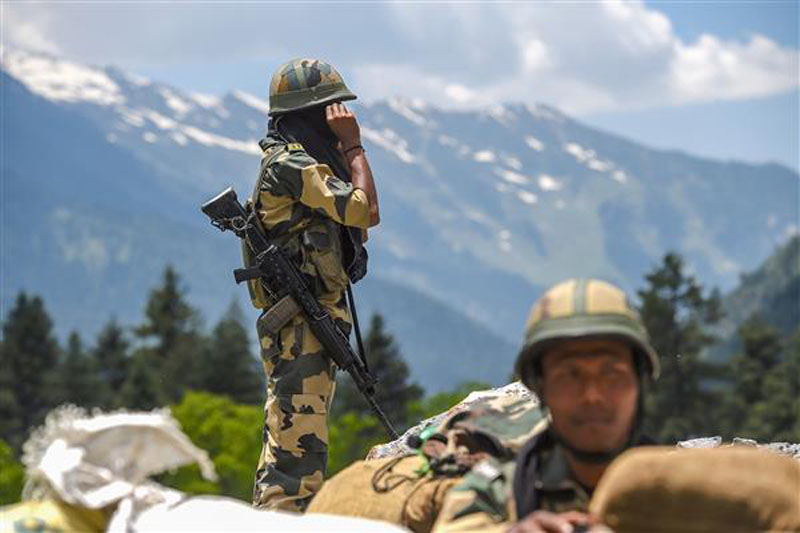
(TibetanReview.net, Jun15’21) – The reason why China initiated the border standoff in April-May last year was because they wanted “to move their ground positions to what their claims were in Eastern Ladakh.” It was able to achieve that objective to a certain extent but the Indian armed forces were able to thwart their plans, former Indian Ambassador to China Gautam Bambawale has told theprint.in Jun 15.
Given this context, Bambawale has warned that bilateral ties between New Delhi and Beijing could deteriorate further in the coming years.
“The move that the Chinese made a year back or a little over a year back in Eastern Ladakh was a well-planned one. So, they obviously had certain objectives, military objectives, for doing this,” he has said. “Now one of the objectives, which we can clearly see today one year down the line is that they wanted to move their ground positions to what their claims were in Eastern Ladakh and to a certain extent they have been able to do it, but not entirely because the Indian Army then was able to do a troop build-up and the Indian armed forces performed magnificently.”
Bambawale has said the Chinese had moved almost 50,000-60,000 troops to Eastern Ladakh by the end of April and early May 2020 that led to the standoff. He has added that the troops had moved in with heavy armour, artillery, and tanks, which made it clear that it was a “planned move”.
“It is obvious that when the Chinese have such objectives, they are not going to back down on them,” the former Ambassador has said.
“So far we have managed the disengagement to one sub-sector of Eastern Ladakh, which is the Pangong Lake area, in the other sub-sectors we’ve seen that the Chinese are not willing to go back.”
With the process of disengagement and de-escalation stalled, Bambawale has said the situation continued to remain tense in the border areas of eastern Ladakh, and could quickly escalate into a war-like situation.
“India is not going to compromise on its national interests and there will be a relationship between India and China that will be at a much lower level,” Bambawale has said. “A recalibration, a reset of the India-China relationship is taking place.”
He has added that unless China restores status quo ante to what the respective positions were before Apr 2020 in Ladakh, the two-way ties cannot be normal.
He has said the Ladakh border situation was dangerous even now and could quickly escalate into a war-like situation.
“There is a great asymmetry in power between China and India,” he has said, adding India should increasingly look at being part of the coalitions such as the Quad, or Quadrilateral Security Dialogue to strengthen its partnerships, alliance, and coalition with other countries and secure greater international support.





